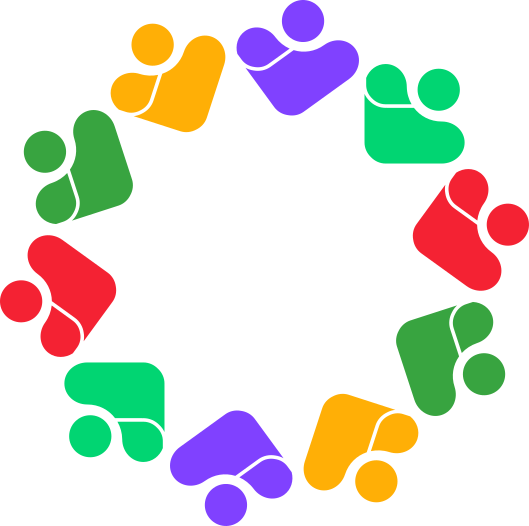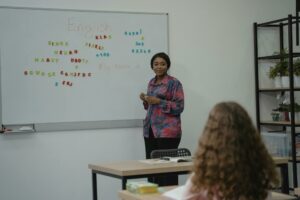When it comes to education, there isn’t a one-size-fits-all solution. Traditional schools, while effective for many, may not always cater to every child’s unique learning needs. In response to this, alternative education models have emerged as viable alternatives, offering flexible approaches tailored to individual students. If you’re considering a different approach to your child’s education, understanding the various alternative models is essential. In this blog, we’ll explore what alternative education models are, their advantages and disadvantages, and the factors you should consider when deciding on an education model for your child.
What Are Alternative Education Models?
Alternative education refers to educational systems or teaching approaches that differ from the traditional, standardised educational models. These models tend to emphasise personalised learning, creative exploration, and non-traditional assessment methods. They are designed to cater to students who may not thrive in conventional classroom settings or whose learning styles don’t align with traditional education methods.
Some of the key alternative education models include Montessori, Waldorf, Reggio Emilia, project-based learning, and unschooling. Each of these approaches has unique philosophies and strategies, but they share common goals: to foster a love of learning, support personal development, and create environments that are student-centred.
Types of Alternative Education Models
1. Montessori Education
The Montessori method, founded by Dr. Maria Montessori in the early 20th century, is one of the most well-known alternative education models. This approach focuses on self-directed learning in a prepared environment. Students choose their own learning activities based on their interests, with guidance from the teacher as needed. The Montessori method emphasises independence, hands-on learning, and social-emotional development. It is ideal for children who enjoy learning at their own pace and prefer autonomy in their educational journey.
Pros:
- Encourages independence and self-discipline.
- Fosters a strong sense of responsibility.
- Adapts to individual learning styles.
Cons:
- May lack structure for some children.
- Requires well-trained Montessori educators, which can be scarce.
2. Waldorf Education
Waldorf education, founded by Rudolf Steiner in the early 20th century, focuses on holistic development—intellectual, emotional, and spiritual. It uses a rich curriculum that includes the arts, hands-on activities, and nature-based learning. In Waldorf schools, students learn in multi-age classrooms and are guided by the same teacher for several years, building strong relationships and stability. The emphasis is on creativity, imagination, and experiential learning.
Pros:
- Nurtures creativity and artistic expression.
- Emphasises emotional and social development.
- Promotes a strong sense of community and connection.
Cons:
- Curriculum can seem non-traditional and may not prepare students for standardised tests.
- May not suit children who need a more structured or academic approach.
3. Reggio Emilia Approach
The Reggio Emilia approach is an Italian-origin educational philosophy focusing on early childhood education. It views children as capable, competent, and full of potential. Learning in this model is project-based and highly interactive, with students engaging in exploration through art, dialogue, and play. Teachers act as facilitators, guiding students’ natural curiosity and fostering collaboration with peers.
Pros:
- Encourages creativity, problem-solving, and teamwork.
- Focuses on emotional intelligence and communication skills.
- Learning is deeply integrated with real-world experiences.
Cons:
- Can be resource-intensive, requiring high levels of teacher involvement.
- Might not work well for students who need more structure or routine.
4. Project-Based Learning (PBL)
Project-Based Learning is an active learning method where students gain knowledge and skills by working on projects that solve real-world problems. The projects are typically interdisciplinary, allowing students to integrate subjects like science, math, and social studies. Students work collaboratively, with teachers acting as guides and mentors throughout the process.
Pros:
- Enhances problem-solving, critical thinking, and collaboration skills.
- Makes learning relevant and engaging.
- Encourages self-directed learning and independence.
Cons:
- Can be challenging to implement in large classrooms.
- Might not be suitable for children who struggle with group work or need more individual attention.
5. Unschooling
Unschooling is a more radical form of alternative education, focusing on the idea that children should learn through their natural interests and experiences rather than through a structured curriculum. It’s often seen as child-led learning where parents act as facilitators, providing resources and opportunities for learning in the home or community. The emphasis is on exploration, play, and real-world experiences.
Pros:
- Encourages deep passion and engagement in learning.
- Tailored to the child’s specific interests and pace.
- Highly flexible and adaptable.
Cons:
- Can be difficult to measure progress or outcomes.
- Lack of structure can lead to gaps in knowledge or skills.
Pros and Cons of Alternative Education Models
Alternative education models offer many benefits, but they also come with their own set of challenges. Here are some general pros and cons:
Pros:
- Personalised learning experience.
- Encourages creativity, critical thinking, and independence.
- Can accommodate different learning styles.
- Fosters a love for learning and emotional intelligence.
Cons:
- May not align with standardised testing or public education systems.
- Can be more resource-intensive.
- Not always available in all areas, limiting options for families.
Factors to Consider When Choosing an Education Model
When deciding on an alternative education model for your child, several factors should be taken into account:
- Your child’s learning style: Does your child thrive in a structured environment, or do they need more freedom to explore their interests?
- The availability of schools in your area: Some alternative education models, like Montessori and Waldorf, may be more readily available in certain regions.
- Your educational values: Are you looking for a model that emphasises creativity, academic rigour, or emotional development?
- Social dynamics: Consider how each model promotes collaboration and social interaction, which can be critical for developing interpersonal skills.
- Cost and commitment: Some alternative models can be more expensive or require more parental involvement. Assess whether you’re ready for this level of commitment.
Conclusion
Choosing the right educational path for your child is an important decision, and alternative education models can provide a customised approach to learning that supports your child’s unique needs and interests. Whether you’re drawn to the freedom of unschooling or the hands-on approach of Montessori, these models offer diverse options that might be a better fit than traditional schooling.
For those considering alternative education in South Africa, you can explore Open Minds Campus as an example of a school that provides innovative, personalised learning experiences for students. Open Minds Campus emphasises project-based learning, creativity, and emotional growth in a supportive environment.
Answers to Common Questions
What is the alternative model of teaching?
An alternative model of teaching focuses on non-traditional approaches that prioritise creativity, independence, and personalised learning over standardised curriculums.
What is an alternative form of education?
Alternative education refers to educational approaches that differ from conventional, mainstream schooling. These models may include Montessori, Waldorf, unschooling, and project-based learning, among others.
What are the three models of education?
The three broad models of education are traditional education (structured, teacher-led), alternative education (non-traditional, student-centred), and online or remote education.
What is an alternative learning method?
An alternative learning method is any educational approach that deviates from conventional classroom settings, focusing on self-directed learning, creativity, and exploration rather than rote memorisation or testing.



